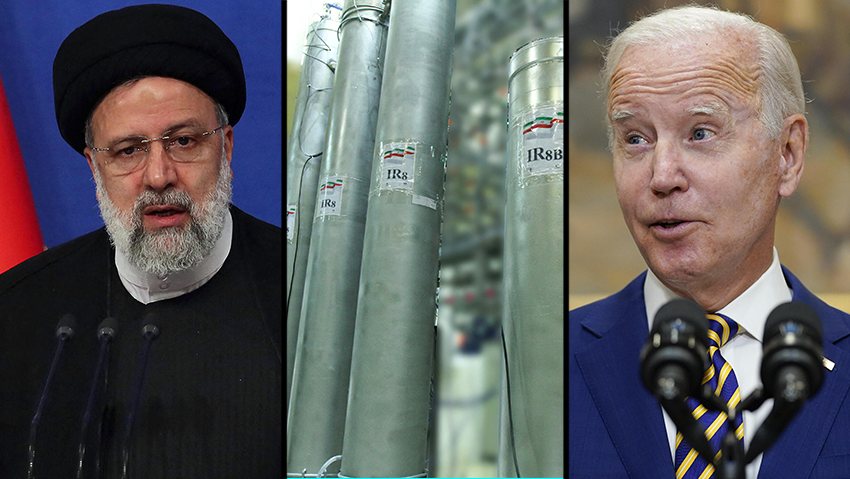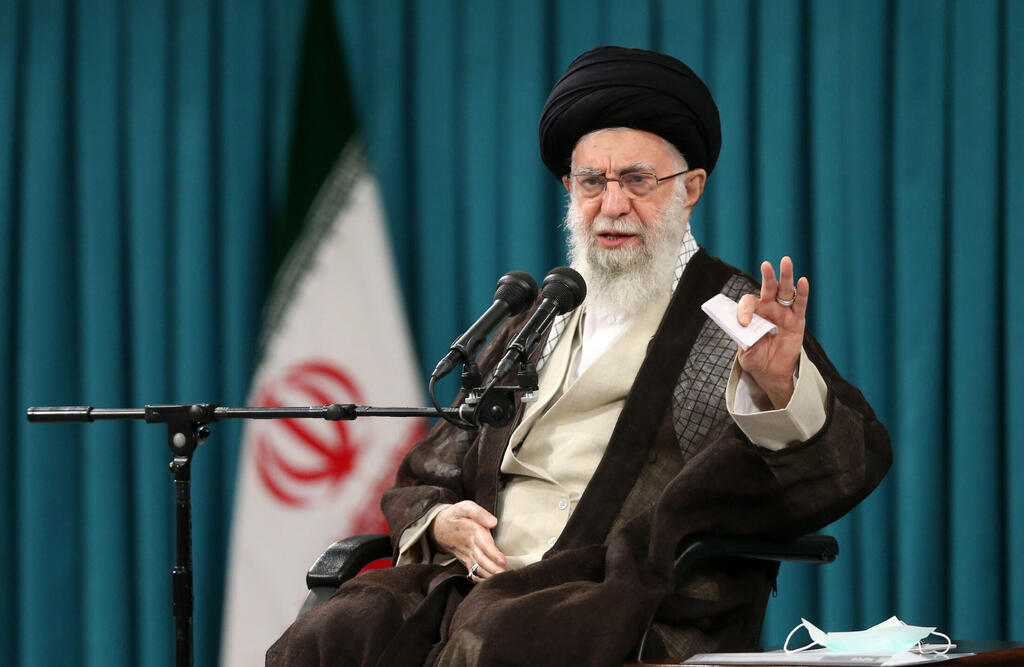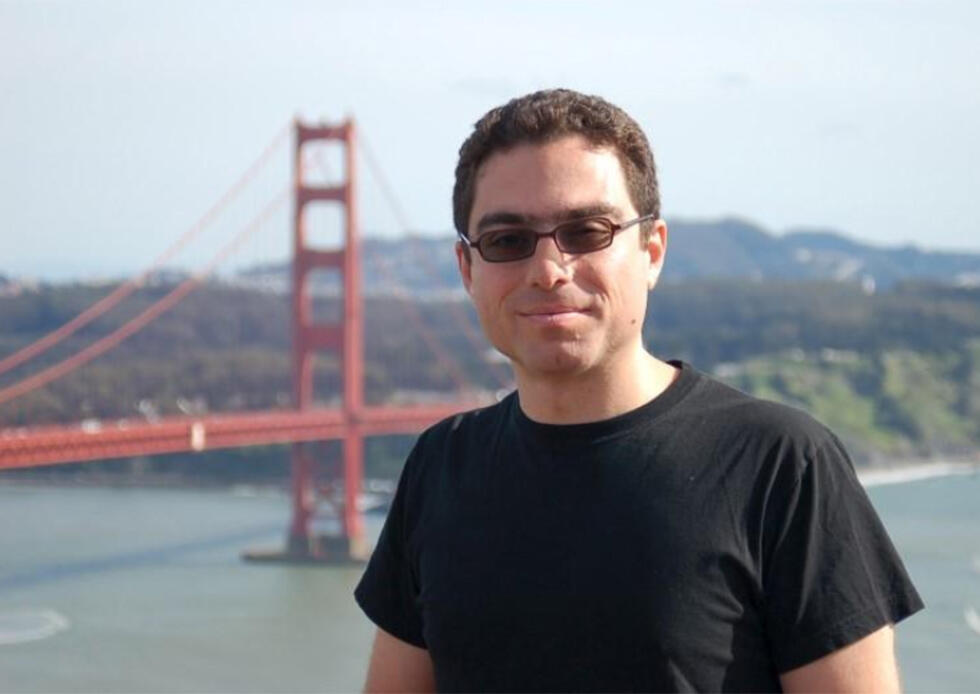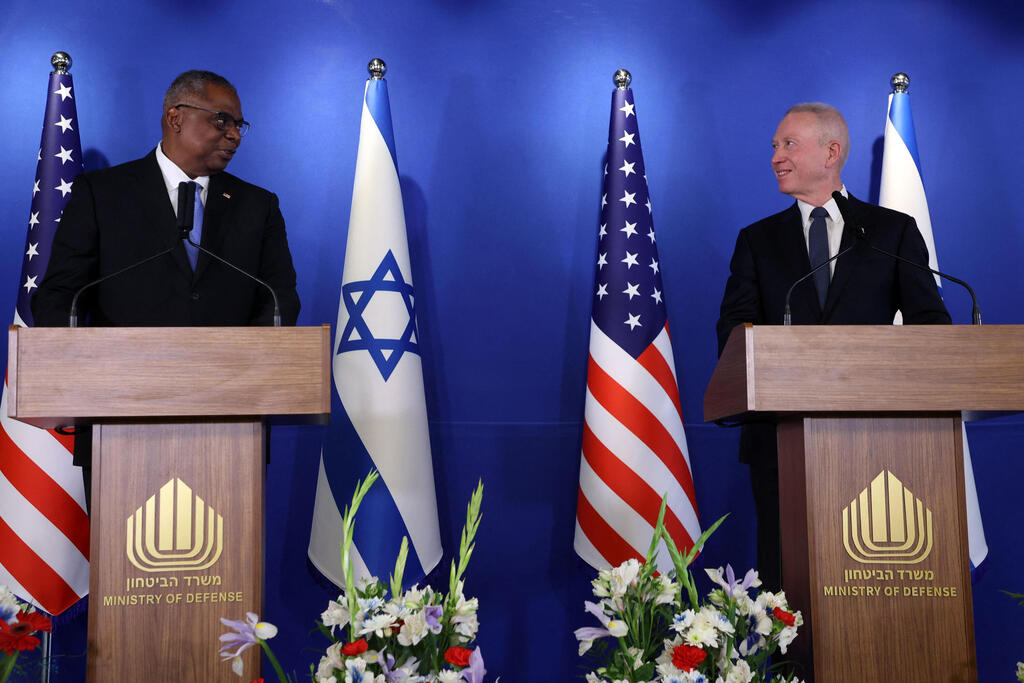Iranian president's visit to Latin America aims to counter western 'domination'
Ebrahim Raisi says ties with Venezuela, Nicaragua and Cuba work to 'confront unilateralism'

The trip marks Ebrahim Raisi's 13th visit abroad since taking office (AFP/File photo)
By MEE staff
Published date: 12 June 2023
This week Iranian President Ebrahim Raisi has set off on a tour of Latin America where he plans to visit Venezuela, Nicaragua and Cuba, in a visit he described as standing against the "domination system" of western countries.
The visit began with a meeting in Venezuela with its president, Nicolas Maduro. Raisi is travelling with his ministers of foreign affairs, petroleum, defence, and health.
“The common position of Iran and the three countries is to stand against the domination system and confront unilateralism,” Raisi said before his trip, as reported by Iranian news outlets.
“In addition to friendly political ties with Venezuela, Nicaragua and Cuba, Iran has also had good cooperation with these countries in the field of energy, industry, agriculture, science and technology, and medicine and treatment,” said Raisi.
The trip marks Raisi's 13th visit abroad since taking the presidential office. Iran is one of Venezuela's main allies, alongside Russia, China, Cuba, and Turkey. And like Venezuela, Nicaragua, and Cuba, Tehran is subject to tough US sanctions.
Last month, a Cuban delegation visited Iran and signed more than a dozen agreements spanning cooperation in healthcare, trade, agriculture, and sports.
Tehran and Havana have worked together on a number of projects, including a joint programme to produce a vaccine against the Covid-19 virus.
“The US government thinks only about its own interests and does not care about others. We have paid a heavy price for our political independence and we will safeguard it,” Cuban President Miguel Diaz-Canel said during the meeting last month, according to Iran's ministry of foreign affairs.
Iran's ties with Latin America
The closest ties Iran has in South America are with Venezuela.
Last year, Maduro travelled to Iran and signed a 20-year deal regarding the two countries' energy and financial sectors, and also pledged to work together on defence-related projects.
Venezuela and Iran are two major oil-producing countries and are both members of the oil cartel Opec, the former of which is home to the world's largest proven reserves of crude oil. However, US sanctions have crippled their economies and stymied much of their ability to export crude.
Isolated by the global financial system, they have engaged in their own oil deals. In 2021, they struck an agreement to swap Iranian condensate - an extremely light oil - for Venezuelan heavy crude.
In 2022, the countries also established a deal to operate direct flights between Caracas and Tehran "in order to promote tourism and the union between our countries", with Maduro saying that "Venezuela is open to receive tourists from Iran".
Iran's ties with Nicaragua originate in the 1980s during the Iran-Contra affair, when then-US President Ronald Reagan's administration secretly facilitated the sale of arms to Iran - which was under an arms embargo - in order to fund right-wing rebels in Nicaragua attempting to overthrow the Sandinista government led by Daniel Ortega.
The scandal took place at a time of US interventionism in Latin America against leftist groups, and Iran developed ties with Ortega's government. Former Iranian President Mahmoud Ahmadinejad visited Nicaragua and met with Ortega in 2007, and the two leaders said they shared common interests and enemies.
Saudi-Iran rapprochement
Raisi's visit to Latin America and meeting with Maduro also comes a week after the Venezuelan leader himself travelled to Saudi Arabia, one of Tehran's adversaries and a close ally of the US.
Maduro's meeting with Saudi Crown Prince Mohammed bin Salman took place a day before US Secretary of State Antony Blinken arrived in Riyadh for a three-day visit.

Iran and US near interim deal on nuclear enrichment and oil exportsRead More »
The kingdom has in recent years worked to pursue its own national interests at the expense of aligning with US positions, as Riyadh's ties with Washington have strained.
In March, Saudi Arabia and Iran ended seven years of severed relations after a deal that was brokered by China, another adversary of the US.
In another sign of pushing out of alignment with Washington, Saudi Arabia welcomed Syrian President Bashar al-Assad in his first trip to the kingdom since the two countries severed ties in 2012.
Assad was suspended from the Arab League after he launched a violent crackdown on street protests by government forces in the wake of the pro-democracy uprisings across the Arab-speaking world.
The crackdown led to a devastating civil war that killed more than a half million Syrians and displaced millions more.
Ebrahim Raisi says ties with Venezuela, Nicaragua and Cuba work to 'confront unilateralism'

The trip marks Ebrahim Raisi's 13th visit abroad since taking office (AFP/File photo)
By MEE staff
Published date: 12 June 2023
This week Iranian President Ebrahim Raisi has set off on a tour of Latin America where he plans to visit Venezuela, Nicaragua and Cuba, in a visit he described as standing against the "domination system" of western countries.
The visit began with a meeting in Venezuela with its president, Nicolas Maduro. Raisi is travelling with his ministers of foreign affairs, petroleum, defence, and health.
“The common position of Iran and the three countries is to stand against the domination system and confront unilateralism,” Raisi said before his trip, as reported by Iranian news outlets.
“In addition to friendly political ties with Venezuela, Nicaragua and Cuba, Iran has also had good cooperation with these countries in the field of energy, industry, agriculture, science and technology, and medicine and treatment,” said Raisi.
The trip marks Raisi's 13th visit abroad since taking the presidential office. Iran is one of Venezuela's main allies, alongside Russia, China, Cuba, and Turkey. And like Venezuela, Nicaragua, and Cuba, Tehran is subject to tough US sanctions.
Last month, a Cuban delegation visited Iran and signed more than a dozen agreements spanning cooperation in healthcare, trade, agriculture, and sports.
Tehran and Havana have worked together on a number of projects, including a joint programme to produce a vaccine against the Covid-19 virus.
“The US government thinks only about its own interests and does not care about others. We have paid a heavy price for our political independence and we will safeguard it,” Cuban President Miguel Diaz-Canel said during the meeting last month, according to Iran's ministry of foreign affairs.
Iran's ties with Latin America
The closest ties Iran has in South America are with Venezuela.
Last year, Maduro travelled to Iran and signed a 20-year deal regarding the two countries' energy and financial sectors, and also pledged to work together on defence-related projects.
Venezuela and Iran are two major oil-producing countries and are both members of the oil cartel Opec, the former of which is home to the world's largest proven reserves of crude oil. However, US sanctions have crippled their economies and stymied much of their ability to export crude.
Isolated by the global financial system, they have engaged in their own oil deals. In 2021, they struck an agreement to swap Iranian condensate - an extremely light oil - for Venezuelan heavy crude.
In 2022, the countries also established a deal to operate direct flights between Caracas and Tehran "in order to promote tourism and the union between our countries", with Maduro saying that "Venezuela is open to receive tourists from Iran".
Iran's ties with Nicaragua originate in the 1980s during the Iran-Contra affair, when then-US President Ronald Reagan's administration secretly facilitated the sale of arms to Iran - which was under an arms embargo - in order to fund right-wing rebels in Nicaragua attempting to overthrow the Sandinista government led by Daniel Ortega.
The scandal took place at a time of US interventionism in Latin America against leftist groups, and Iran developed ties with Ortega's government. Former Iranian President Mahmoud Ahmadinejad visited Nicaragua and met with Ortega in 2007, and the two leaders said they shared common interests and enemies.
Saudi-Iran rapprochement
Raisi's visit to Latin America and meeting with Maduro also comes a week after the Venezuelan leader himself travelled to Saudi Arabia, one of Tehran's adversaries and a close ally of the US.
Maduro's meeting with Saudi Crown Prince Mohammed bin Salman took place a day before US Secretary of State Antony Blinken arrived in Riyadh for a three-day visit.

Iran and US near interim deal on nuclear enrichment and oil exportsRead More »
The kingdom has in recent years worked to pursue its own national interests at the expense of aligning with US positions, as Riyadh's ties with Washington have strained.
In March, Saudi Arabia and Iran ended seven years of severed relations after a deal that was brokered by China, another adversary of the US.
In another sign of pushing out of alignment with Washington, Saudi Arabia welcomed Syrian President Bashar al-Assad in his first trip to the kingdom since the two countries severed ties in 2012.
Assad was suspended from the Arab League after he launched a violent crackdown on street protests by government forces in the wake of the pro-democracy uprisings across the Arab-speaking world.
The crackdown led to a devastating civil war that killed more than a half million Syrians and displaced millions more.
Tehran's confirmation comes after both countries denied such reports for days, with talks centering around sanction relief from Washington and a potential prisoner swap deal
Itamar Eichner, AFP
|06.12.23
Iran is holding indirect talks with the United States through the Sultanate of Oman, including on Americans detained in the country, a diplomatic official in Tehran confirmed on Monday.
Iran is holding indirect talks with the United States through the Sultanate of Oman, including on Americans detained in the country, a diplomatic official in Tehran confirmed on Monday.
The talks in Muscat, the capital of the Sultanate of Oman, "were not secret", Foreign Ministry spokesman Nasser Kanani said when asked about press reports of progress between Tehran and Washington.

Iranian President Ibrahim Raisi and U.S. President Joe Biden
(Photo: AFP, AP)
"In order to stimulate talks on the lifting of" American sanctions against Iran, "we welcomed the efforts of Omani officials and we exchanged messages with the other party through this mediator", he explained during his weekly press conference.
"The talks are continuing in this framework," he said.
Tehran and Washington have not maintained diplomatic relations since 1980 following the Islamic Revolution in Iran.
In recent days, the two capitals have denied media reports that they were close to reaching an interim deal to replace the 2015 Iran nuclear deal, from which the U.S. pulled out in 2018.

Iranian Supreme Leader Ayatollah Ali Khamenei
(Photo: EPA / IRAN SUPREME LEADER OFFIC)
"There is no temporary agreement to replace the JCPOA (an acronym for the agreement) and such a thing is not on the agenda," Iran's mission to the UN said on Friday as quoted by Iranian state news agency IRNA. The White House also called the information that appeared in the press "false".
Tehran is seeking relief from sanctions applied by the United States since 2018, which are severely affecting its economy.
Oman's mediation also covers an exchange of prisoners, for which "negotiations are continuing", Kanani reaffirmed. "If the other side shows the same seriousness as us, we can achieve a result in the near future."
At least three Iranian Americans are being held in Iran, including businessman Siamak Namazi, arrested in October 2015 and sentenced to ten years in prison for espionage.

Siamak Namazi
(Photo: Reuters)
For its part, Iran reported in 2022 the detention of "dozens" of nationals in the United States, some of whom are accused of having "diverted American sanctions" against Tehran.
In recent weeks, Iran has released six European prisoners and recovered an Iranian diplomat convicted of terrorism and imprisoned in Belgium.
In addition, Kanani denied the announcement by the White House that Iran was providing equipment to Russia to “build a drone factory”.
"We deny any accusations regarding the export of arms to Russia for use in the war against Ukraine," the spokesperson said.

U.S. Defense Secretary Lloyd Austin and Defense Minister Yoav Gallant
(Photo: AFP)
Israeli officials have warned that the prospect of Washington and Tehran reaching a new interim agreement on the latter's nuclear program was increasingly likely.
With this concern in mind, Defense Minister Yoav Gallant is set to meet with U.S. Defense Secretary Lloyd Austin on Thursday. The meeting will take place in an unspecified European country because Prime Minister Benjamin Netanyahu has prohibited his ministers from holding meetings with senior U.S. officials in the United States until he is invited to the White House, a traditional courtesy that U.S. President Joe Biden has yet to extend to him.
No comments:
Post a Comment